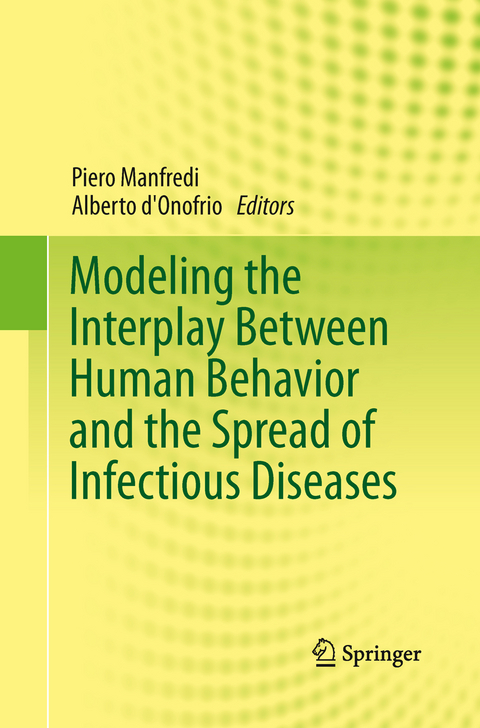
Modeling the Interplay Between Human Behavior and the Spread of Infectious Diseases
Springer-Verlag New York Inc.
978-1-4899-8685-6 (ISBN)
With contributions from experts in this field, the book fills a void in the literature. It goes beyond classical texts, yet preserves the rationale of many of them by sticking to the underlying biology without compromising on scientific rigor. Epidemiologists, theoretical biologists, biophysicists, applied mathematicians, and PhD students will benefit from this book. However, it is also written for Public Health professionals interested in understanding models, and to advanced undergraduate students, since it only requires a working knowledge of mathematical epidemiology.
Behavioral epidemiology of infectious diseases: an overview (C. Bauch et al.). -Part 1. Field data on behaviour. -Survey on the likely behavioural changes of the general public in 4 European countries during the 2009/2010 pandemic (C. Rizzo et al.). -Factors influencing infant and adolescent vaccine uptake in Flanders, Belgium (H. Theeten et al). -Part 2. Modeling behaviour change in response to epidemic threats. -Modeling the Impact of Behavior Changes on the Spread of Pandemic Influenza (S.Y. Del Valle et al.). -Uncoordinated human responses during epidemic outbreaks (P. Poletti et al.). -The talk of the town: modelling the spread of information and changes in behavior (S. Funk and V. Jansen). -Modeling contact and mobility based social response to the spreading of infectious diseases (N. Perra and A. Vespignani). -Incorporating human behaviour in epidemic dynamics: a modelling perspective (Istvan Z. Kiss). -Risk perception, heuristics and epidemic spread (P. Liò et al.). -The mechanism and phenomena of adaptive human behavior during an epidemic and the role of information (E.P. Fenichel and X. Wang). -Part 3. Modeling vaccinating behaviour. -The Economic approach to modeling self-protective behaviour in epidemiology (F. Chen). -Mathematical epidemiology and welfare economics (M. Gersovitz). -Modeling influenza vaccination behaviour via inductive reasoning games (R. Vardavas and C.S. Marcum). -Modeling voluntary influenza vaccination using an age-structured inductive reasoning game (R. Breban). -Emergent dynamical features in behaviour-incidence models of vaccinating decisions (S. Bhattacharyya and C.T. Bauch). -Impact of vaccine behavior on the resurgence of measles (E. Shim et al.). -Vaccinating behavior and the dynamics of vaccine preventable infections (A. d'Onofrio et al.). -The geometrical approach to global stability in behavioralepidemiology (B. Buonomo et al.). - "Capturing human behaviour: is it possible to bridge the gap between data and models?" (W.J. Edmunds et al.).
| Zusatzinfo | XIII, 329 p. |
|---|---|
| Verlagsort | New York |
| Sprache | englisch |
| Maße | 155 x 235 mm |
| Themenwelt | Informatik ► Weitere Themen ► Bioinformatik |
| Mathematik / Informatik ► Mathematik ► Algebra | |
| Mathematik / Informatik ► Mathematik ► Angewandte Mathematik | |
| Studium ► Querschnittsbereiche ► Infektiologie / Immunologie | |
| Studium ► Querschnittsbereiche ► Prävention / Gesundheitsförderung | |
| Naturwissenschaften ► Biologie | |
| Naturwissenschaften ► Chemie | |
| ISBN-10 | 1-4899-8685-5 / 1489986855 |
| ISBN-13 | 978-1-4899-8685-6 / 9781489986856 |
| Zustand | Neuware |
| Informationen gemäß Produktsicherheitsverordnung (GPSR) | |
| Haben Sie eine Frage zum Produkt? |
aus dem Bereich


